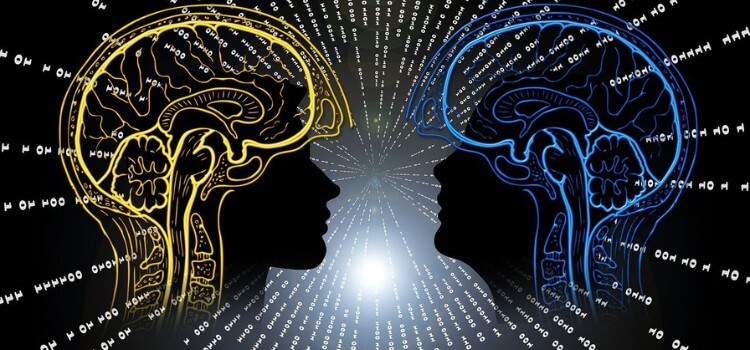As an Amazon Associate, I earn from qualifying purchases
Quantum computing has the potential to totally change computing as we currently know it, owing to its incomparable effectiveness and speed. Factorization, or dividing a big number into its prime components, is one of the most exciting uses of quantum computing. Factorization is used in a variety of applications, including cryptography, artificial intelligence, and machine learning. In this post, we’ll discuss the fundamentals of quantum computing factorization and explore a real-world use case of factorization in quantum computing.

Introduction to Factorization in Quantum Computing
In comparison to conventional computing, quantum data processing provides unheard-of power and rapidity. It is a pioneering new technology. Factorization, or dividing an immense number into its prime components, happens to be one of the most attractive uses of quantum computing. Several fields including as machine learning, artificial intelligence, and encrypted communication, must have factorization. In this post, we’ll discuss the fundamentals of quantum computing factorization and explore a real-world use case of factorization in quantum computing.
The intricate process of compounding involves breaking down a big When converting an integer into its highest-order the components. This process requires intense computational power, which is why traditional computers are not able to perform such calculations in a reasonable amount of time. Nonetheless, factorization computations are capable of being executed in substantially greater time by quantum computer systems than by traditional computers.
Quantum computers use a technique called Shor’s algorithm to factorize numbers. This algorithm uses a combination of quantum bits (qubits) and mathematical operations to factorize a number into its prime factors. Shor’s algorithm works by determining the number of factors in a number and then isolating the prime factors. This algorithm is not only faster than traditional computing methods, but also more accurate.
The potential applications of factorization in quantum computing are immense. For example, factorization can be used to break down passwords into their prime factors, making them easier to crack. Factorization can also be used to help artificial intelligence and machine learning algorithms identify patterns in large data sets. Factorization can even be used to create better encryption algorithms, making it harder for cyber-criminals to access confidential data. In conclusion, factorization is a powerful technique used in quantum computing that has a wide range of applications. It can be used to improve and speed up traditional computing processes, as well as to create stronger encryption algorithms and more accurate artificial intelligence algorithms. With the development of quantum computing, factorization will continue to be a key tool for improving computing technology.
Explaining the Factorization Problem
It’s important for fully understanding in order to take advantage of the endless possibilities of quantum computing. It is not impossible to factorize a large amount, or distribute it up into a number which describes the elements that are most important. This process can be used to efficiently solve certain problems. Factorization can be applied to a range of problems, including cryptography, machine learning, and artificial intelligence. In cryptography, factorization can be used to break down passwords into their prime factors.
In the different fields of AI and the application of machine learning, factorization is an advantageous approach for identifying trend lines in a substantial quantity of data. Finally, factorization can be used to create better encryption algorithms, making it more difficult for cyber-criminals to access confidential data. Factorization has an assortment of anticipated uses and has the opportunity to further develop technological advances in computing. With the development of quantum computing,factorization will continue to play an important role in improving the efficiency of computing tasks.
Potential Applications of Factorization in Quantum Computing
is an interesting idea. A common method of factorizing involves breaking down a considerable amount into its heights elements or components. A certain problem including the technique of cryptography learning through machines, and the use of AI are resolved thanks to this approach for solving them. In cryptography, factorization is used to break down passwords into their prime factors for better security. Factorization has emerged as an invaluable method in both machine learning and AI for discovering associations in immense information sets up. Furthermore, factorization can be used to create better encryption algorithms which are more difficult to break by cyber-criminals.
The process of factorization is an effective means that is capable of substantially improving computing efficacy utilizing the use of quantum computing. By creating better algorithms, it can help reduce computing time and cost immensely. It is possible to be operational, for particulars, to speed up the lengthy procedure of perusing through big database tables. It may additionally be applied to forecast the outcomes and gain a greater grasp of data recent developments. Furthermore, in cryptography, factorization can be used to create stronger encryption algorithms.
This will help protect confidential data from being stolen by cyber-criminals. To sum it up, factorization is a successful approach that could get executed to raise the output of computational activities. Factorization let by quantum science might greatly simplify computer tasks and perhaps convert how currently computers are used in everyday life. With its wide range of applications, factorization can play a major role in improving computing technologies.

Exploring the Shor’s Algorithm
can help us understand how to use factorization to create stronger algorithms that can reduce the computing time and cost. The Shor’s Algorithm is a factorization algorithm that can be used to search large databases quickly and accurately. With the quick and basic interpretation of data sequences, it additionally has the potential to chose to forecast potential medical results. In cryptography, the Shor’s Algorithm can be used to create stronger encryption algorithms, which will help protect confidential data from being stolen by cyber-criminals.
Moreover, the Shor’s Algorithm also has applications in quantum computing. The first quantum computers are capable of dramatically improving data processing performance on tasks with the Shor’s the following sections. Factorization is a powerful process that can be used to improve the efficiency of computing tasks. By exploring the Shor’s Algorithm, we can understand how it can be used to improve the performance of computing tasks and make computing technologies more efficient.
Pros and Cons of Factorization in Quantum Computing
The use of factorization in quantum computing has become increasingly popular, as it has the potential to significantly reduce the computing time needed to complete tasks. By utilizing factorization, quantum computers can achieve impressive levels of speed and accuracy, allowing them to tackle complex problems with unprecedented levels of efficiency. With this technology, the computational speed and accuracy of quantum computers can be multiplied by several orders of magnitude.
The main advantage of using factorization in quantum computing is its ability to reduce the computing time needed to complete a task. Quantum computer systems have the ability to recognize structure quickly and accurately with the aid of factorization strategies, which may results in happier computing acts. These algorithms can also help to reduce the cost of computing, as they can reduce the amount of energy needed to complete a task. Additionally, factorization algorithms can help to increase the security of data, as they can be used to create stronger cryptographic algorithms, which can help to protect valuable data from cyber-criminals.
The factorization of numbers in the field of quantum computing could present main drawbacks in plus many benefits. For example, the algorithms used for factorization can be difficult to implement, as they require specialized knowledge and understanding of quantum computing. Additionally, some factorization algorithms have been found to be vulnerable to attacks, meaning that hackers may be able to gain access to data that has been protected by these algorithms. Finally, factorization algorithms can be resource-intensive, meaning that they can require a significant amount of energy to complete, which can be costly.
Conclusion
quantum computing algorithms can be used to factor large numbers efficiently. In the process of cryptography factorization—the process of splitting a composite statistic into its highest and lowest factors—is used to retrieve signals. Shor’s the following section is a method that quantum computing engines can use in order to factor huge amounts faster than can be achieved on typical machines. This type of computation could be used to break encryption protocols that use large prime numbers as keys. As quantum computing continues to develop, factorization could become a common use case for quantum computing.
Amazon and the Amazon logo are trademarks of Amazon.com, Inc, or its affiliates.
